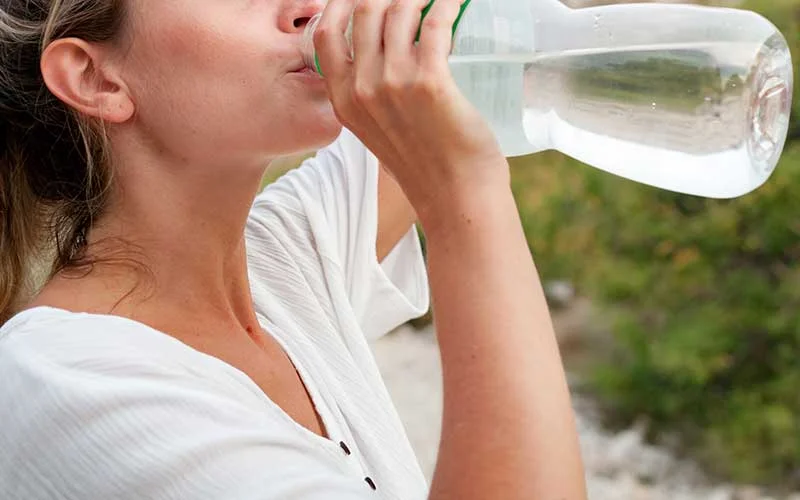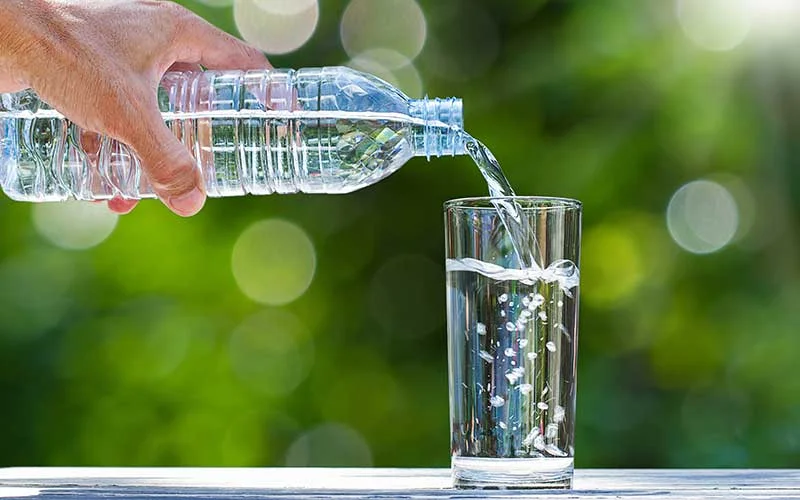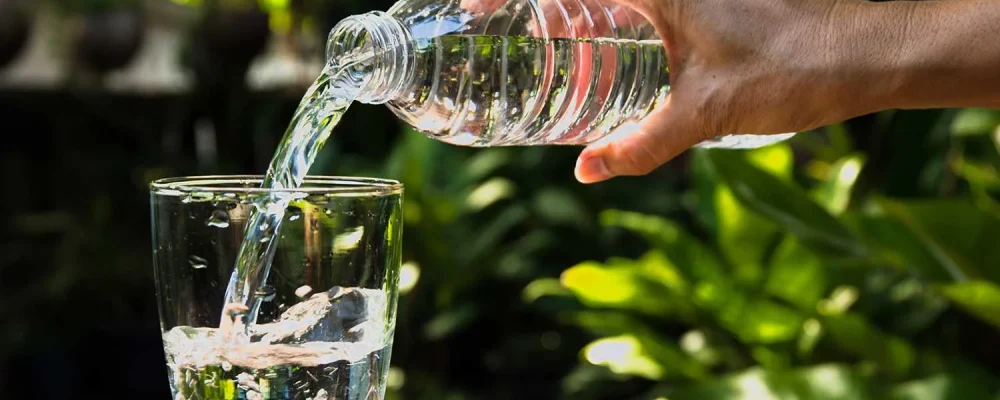Have you ever thought about why hydration is so important? It turns out that staying hydrated isn’t just a casual thing – it’s like giving your body a secret superpower. From keeping your energy up to helping your brain think clearly, hydration is the key to feeling good. Let’s examine why keeping a glass of water nearby is one of the smartest things you can do for your body.
Importance of Hydration for the Human Body
Why is hydration such a big deal? Well, let’s start with a simple analogy: think of staying hydrated as giving your body its much-needed refresh button. It’s not just about following a health trend; it’s about keeping everything inside you running like a well-oiled machine.
Water helps us stay alive and healthy in many ways. Our bodies are made up of a lot of water, and this water helps with many things. It helps move good stuff like nutrients and oxygen to our cells, and it also helps take away bad stuff like waste and toxins. Water also helps our bodies stay at the right temperature and helps our joints move smoothly. It’s like a helper for all the little activities that happen inside our bodies, like when we use energy or digest food.
Do you know that awesome feeling when your joints move smoothly and effortlessly? Thank Water for that! It’s like your body’s natural lubricant, ensuring things stay flexible and comfy. The water inside you keeps your body’s show on the road. It’s not just hanging out; it’s playing a major role in everything from your cells and tissues to your organs.
But wait, there’s more. When you sit down for a delicious meal, water steps up to the plate (pun intended) differently. It’s like your body’s food partner, helping break down what you eat into nutrients that can be sent to where they’re most needed.
Oh, and here’s a mind-blowing tidbit: water doubles as your body’s cleaning crew. Imagine it with a little superhero cape, swooping through your system and getting rid of toxins and waste. That’s right – it’s your janitor and even exits the scene through that all-familiar process called urine. So, the next time you reach for a glass of water, remember that you’re not just quenching your thirst; you’re giving your body the superstar treatment to stay flexible, well-fed, and refreshed.
Potential Dangers of Becoming Dehydrated

Dehydration might sound like a minor annoyance, but don’t let its quiet demeanor fool you. It’s like that sneaky villain that can wreak havoc on your body if you’re not careful. Here are some serious dangers you need to watch out for:
Energy Plummet: When dehydrated, your energy levels take a nosedive. You might feel constantly tired and sluggish, making even the simplest tasks feel like a struggle.
Cognitive Cloudiness: Your brain relies on proper hydration to function optimally. Dehydration can lead to difficulty focusing, memory lapses, and a foggy mental state.
Heat-related Hazards: Dehydration can hinder your body’s ability to regulate temperature through sweat. This increases your risk of heat-related illnesses like heat exhaustion and heatstroke, especially in hot weather or during physical activity [1].
Mood Meltdown: Your mood can take a hit when you’re dehydrated. Imbalances in your body due to lack of fluids can lead to irritability, mood swings, and heightened stress levels.
Kidney Complications: Your kidneys are vital in filtering waste from your body. Dehydration can strain them, potentially leading to a build-up of toxins and increasing the risk of kidney stones [2].
How Much Do I Need?

Let’s tackle the golden question: How much water do you need? Forget the old “eight 8-ounce glasses a day” spiel – it’s a bit more nuanced than that. Your hydration needs are as unique as you are. Your age, how much you weigh, how active you are, and even the weather play a role. But here’s a ballpark: around 11.5 cups (about 2.7 liters) of fluids a day. And guess what? That includes all liquids, not just water, but your food’s water content [3].
How Do I Know I Am Drinking Enough?
Okay, let’s break it down real easy. Take a look at your pee. Yep, you heard that right. If it’s a light pale yellow, you’re all good. But if it’s a darker yellow, that’s a sign to step up your water game. And hey, don’t ignore your thirst. If you’re feeling thirsty, it’s your body giving you a nudge, like, “Hey, remember me? I need water!” So don’t brush off that feeling – give your body what it’s asking for [4].
FAQs
How Long Does It Take to Hydrate?
You might wonder, “How fast will chugging a glass of water fix me up?” Well, it depends. If you’re just a tad thirsty, sipping water throughout the day is like giving your body a steady flow of hydration. If you’re feeling more like a raisin, a few hours of consistent sipping should get things back on track.
Is Coffee Hydrating?
Coffee addicts, this one’s for you. Yes, your daily cup of Joe counts toward your hydration goal. Coffee might have a smidge of caffeine, which could make you hit the bathroom a bit more often, but it still brings a good dose of water to the hydration party. So, feel free to sip away without guilt.
Do Electrolytes Hydrate You?
Ever heard of electrolytes? They’re like hydration’s sidekicks, keeping things balanced in your body. They’re the MVPs of sodium, potassium, and magnesium minerals that help your cells hold onto water. Sports drinks with electrolytes can be a game-changer after intense workouts, but for everyday sippin’, plain old water usually does the trick.
Does Distilled Water Hydrate You?
Distilled water might sound fancy, but it’s just water that’s had a spa day. It’s purified, with all the impurities and minerals filtered out. Some folks debate if it’s the best option for long-term hydration since it’s mineral-free, but honestly, for most of us, a little distilled water now and then won’t mess with our hydration groove.
Final Thoughts
Hydration isn’t just a wellness trend. It’s like giving your body a big, refreshing gulp of self-care. Water keeps everything humming – from digestion to how you think and feel. So, take a moment to appreciate the power of hydration. Listen to your body, give it the water it deserves, and you’ll run smoother than a freshly oiled machine. Cheers to staying hydrated and feeling awesome.
Source
[1] Rundell, B. (2023) Need-to-Know Facts About Dehydration, Heat Exhaustion and Heat Stroke. https://baptisthealth.net/baptist-health-news/dehydration-heat-exhaustion-heat-stroke
[2] Roncal-Jimenez, C., Lanaspa, M. A., Jensen, T., Sanchez-Lozada, L. G., Johnson, R. J. (2015). Mechanisms by Which Dehydration May Lead to Chronic Kidney Disease. https://pubmed.ncbi.nlm.nih.gov/26088040/
[3] Meinders, A.J., Meinders, A.E. (2010). How much water do we really need to drink? National Library of Medicine. https://pubmed.ncbi.nlm.nih.gov/20356431/
[4] LeWine, H. E. (2023). How much water should you drink? Harvard Health Publishing. https://www.health.harvard.edu/staying-healthy/how-much-water-should-you-drink
RV Team
* Reviewology is in partnership or collaborates with top brands highlighted on this site, including those occupying the top ranking positions.
Additionally, we earn affiliate commissions from products showcased on this website when you make a purchase through the provided links on Amazon or the company website directly.
We appreciate your support using our links to purchase your favorite brands or newly discovered brands.
Latest updates
I Thought I’d Always Feel Tired, Fat, and Forgotten—Until This
310 Greens vs AG1
The Truth About 310 Greens: A No-Nonsense Review of This Popular Supplement
Popular
I Thought I’d Always Feel Tired, Fat, and Forgotten—Until This
310 Greens vs AG1
The Truth About 310 Greens: A No-Nonsense Review of This Popular Supplement
© 2024 Reviewology. All Rights Reserved.
